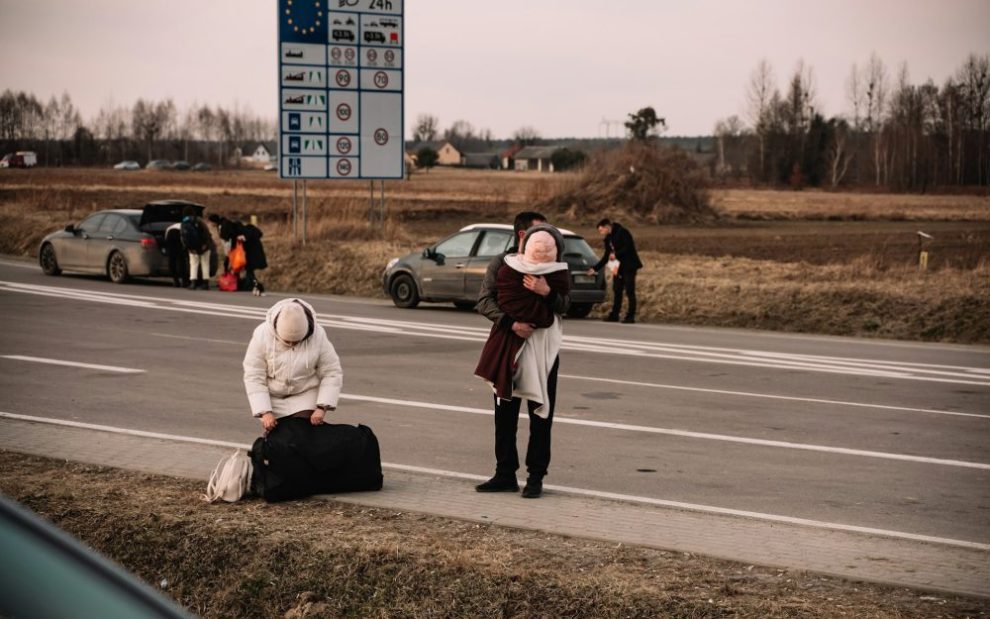“All the Christian faithful and people of good will are called upon to consider the legitimacy of norms and public policies in the light of the dignity of the person and his or her fundamental rights. . . . The rightly formed conscience cannot fail to make a critical judgment and express its disagreement with any measure that tacitly or explicitly identifies the illegal status of some migrants with criminality.” (Pope Francis, Letter to the Bishops of the United States, February 10, 2025)
We were an unexpected sight: a small group of women from Canada, the Amazon, Australia, and the United States ushered into a meeting with Pope Francis in his private library office at the Vatican. His delicate health had made it increasingly difficult for the Holy Father to be present with the world’s most vulnerable, so instead he had invited us to come to him and share our work.
As a theologian, I brought the stories and hopes of the young people I teach, and even more crucially, the heartbreak of immigrants and refugees. Like Papa Francisco wrote in the letter quoted above, I continue to be confronted by the challenge of what it means to uphold and defend the dignity of every person.
When I was a brand-new professor, I sat in my office with one of my brightest students. Unexpectedly, he shared the grief of lacking the proper immigration documents to hold a job and serve the community he loved. I did not know what to do, but I knew this required me to act.
I had come to the United States as a child refugee myself, but as the traumatic memories receded, I had neglected to see what was happening around me. Did I really believe that all human beings were made in the image of God as our faith professed? What did it mean to be confronted by “norms and public policies” that denied the full dignity of my young student and the many others it has been my privilege to walk with and serve since that day?
When Pope Francis was elected, his first public act was to call attention to migrants dying at sea, victims of systems of power that oppress the most vulnerable. As the Holy Father prayed in Lampedusa, I felt our kinship and recognized that same love I feel for my students. In Pope Francis, love overflowed to cover the entire world.
Our shared concern for the vulnerable finally brought us together that recent day in Rome, and as he held my hand, I wanted that feeling of strength for every displaced person walking our suffering planet. When I told the Holy Father of my decades of work with undocumented youth, he began to ask me pointed questions about the situation for migrants in this country. I could see the deep sadness in his eyes along with his tenderness. The work is difficult, but we do it together.
This article also appears in the July 2025 issue of U.S. Catholic (Vol. 90, No. 7, pages 16-21). Click here to subscribe to the magazine.
Image: Unsplash/Kevin Buckert















Add comment